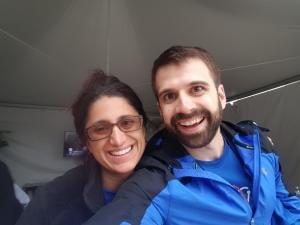About Me
I work at the intersection of science, technology and politics. My services include writing and editing — especially long-form reports — as well as message development, media relations, and crisis communication. I have a full time role at Catalist, a progressive data utility, and consult with several organizations and causes.
If you're interested in working together, please don't hesitate to reach out. You can reach me at aaronhuertasATgmail.com.
My main interests in political communication include unionizing political workforces, ethical email programming and democratic input into campaigns and policy processes. Additionally, I'm interested in bike shop operations, construction and climate-friendly economic development.
My family and I are based in Lewes, Delaware. Here's my LinkedIn and a copy of my resume.
Career Highlights
I spent the bulk of my early career at the Union of Concerned Scientists (UCS), where I helped researchers communicate with policymakers and respond to bad faith attacks on their research, including censorship and political interference. As science communication became an increasingly important part of the scientific community's work I started conducting workshops and compiling communications guides for scientists.
In 2014, I analyzed a year's worth of cable news coverage of climate science, which led to significant improvements at CNN, where hosts were still hosting debates about the reality of climate change.


In 2016, I became increasingly worried that Donald Trump would win the presidency and took a leave of absence from my day job to run a field office for NextGen Climate in Athens, Ohio. While I'd volunteered for campaigns before, this was first time doing full-time organizing work.

After Trump won, a lot of new groups sprang up, including 500 Women Scientists, a science-justice focused group for which I served on their national advisory board for several years and help out with voter mobilization programming.
I also volunteered with the national March for Science organization in 2017 and joined other volunteers to speak out against organizational mismanagement post-march. Thankfully, the march included some happy memories, especially meeting Dr. Mona Hanna-Attisha, who exposed the deadly lead poisoning in Flint's water supply.

I also started working with Swing Left, a grassroots group that connects volunteers to their closest competitive House district. I served as the organization's strategic communications director, which involved a lot of work on messaging and translating between our field and tech teams to make sure volunteers were getting what they needed to organize. We also discovered that the progressive movement was running short on email practitioners, so I stepped up to lead our email program, which wound up raising $10 million for House candidates and connecting 1 out of every 12 Swing Left subscribers with a canvassing or phonebanking shift, wildly exceeding even our own ambitious expectations.
I'm especially proud of that email program because we fully integrated our field team into developing custom content based on specific House districts and local voter contact goals. That detailed work, — including training up a team of email volunteers who personally responded to subscribers — paid off with people understanding where their time would be best used and taking action.

With Democrats back in control of the House, I also had an opportunity to serve in a government startup, in this case as the communications director for the U.S. House Select Committee on the Climate Crisis. I created the first caucus-wide messaging platform for climate and clean energy issues and also got to integrate the "warming stripes" into what may be the first government logo that directly integrates scientific data.

After launching the committee, I went back to working with voter registration and mobilization groups, including a startup—We Can Vote—that connected public health officials and election administrators as they responded to the COVID-19 pandemic and relatively rapid changes to election practices. We delivered several million dollars worth of programming, including online ads and paper voter guides distributed through health clinics.
The pandemic also gave me an excuse to learn how to do audio production, so I launched the Close Read podcast, which ran weekly episodes for several months.
In 2020, I started working with Catalist, a progressive data utility that provides voter file and membership services to Democratic campaigns, public interest groups and unions. As their communications director, I represent the organization to journalists, write explainers for database customers and edit the What Happened series, which offers a voter-view of the electorate after major contests. Along with my colleagues, I voted to unionize the organization through the Communication Workers of America's CODE-CWA campaign. I'm also an associate member of the Campaign Workers Guild.
Job Boards and Listings
These are the jobs boards and listings I follow. Let me know if you find some more worth flagging. I regularly share this with folks looking for work.
- Idealist.org - General progressive, non-profit jobs
- GAIN Power - Job board focused on progressive campaigns, non-profits
- Daybook.com - Political, policy and non-profit jobs
- Bluestate - Progressive firm with a newsletter that includes job listings
- Matt Lockshin Digital Jobs - Progressive digital jobs newsletter
- DNC Talent Bank - Newsletter w/ Democratic party and independent progressive jobs
- EMILY’s List job bank - Newsletter
- Tom Manatos jobs - Capitol Hill, lobbying and DC jobs
- On-Ramps - Mid- and senior-level recruitment for foundations, non-profits, advocacy
- Nerdy Email - Progressive list-serv for digital operatives who largely work on email